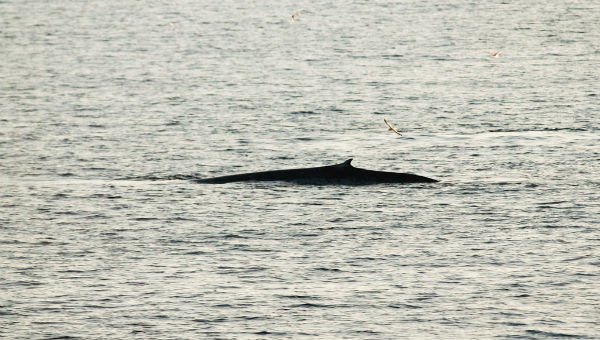Will review international whaling regime

FNI Senior Policy Analyst Christian Prip has been given the task to conduct an independent review of the International Whaling Commission.
Prip will review the Commission as part of an expert panel of three. The other two are Professor Fabio Hazin of the Universidade Federal Rural de Pernambuco in Brazil, who has chaired the FAO’s Committee on Fisheries, and David Sheppard of TierraMar Consulting in Australia, who has previously headed both the IUCN’s Global Protected Areas Programme and the Secretariat of the Pacific Regional Environment Programme.
Senior Policy Analyst Christian Prip at FNI is an expert on biodiversity and related policy and law, and he has previously been Denmark’s Chief Negotiator to the Convention on Biological Diversity.
Will recommend reforms
 The review was decided at the last meeting of the International Whaling Commission (IWC) in 2016. Together the expert panel will review primarily the effectiveness and practical functioning of the International Whaling Commission: They will give a comprehensive review of the Commission’s institutional and governance arrangements, and provide recommendations for reform that will enhance the Commission’s effectiveness. Finally, they will also establish a draft roadmap for implementing the reform recommendations. The panel will start their work this spring, and a final review is expected in March 2018.
The review was decided at the last meeting of the International Whaling Commission (IWC) in 2016. Together the expert panel will review primarily the effectiveness and practical functioning of the International Whaling Commission: They will give a comprehensive review of the Commission’s institutional and governance arrangements, and provide recommendations for reform that will enhance the Commission’s effectiveness. Finally, they will also establish a draft roadmap for implementing the reform recommendations. The panel will start their work this spring, and a final review is expected in March 2018.
Great controversies
IWC is the decision making body of the International Convention for the Regulation of Whaling (ICRW) , and held its first meeting in 1949. The initial members of the IWC were whaling nations and the Commission worked with an objective to maintain whale stocks for the development of the whaling industry. In the end of the 70s the number of state members increased considerably (now 89), and its focus changed from use to conservation. In 1982 the IWC adopted a moratorium on commercial whaling, and in 1994, the Southern Ocean Whale Sanctuary was created. In addition, there is the Indian Ocean Sanctuary, which was established back in 1979.
The IWC has been a forum of great controversy. The moratorium on commercial whaling has been strongly opposed by traditional whaling states such as Japan, Norway and Iceland. Norway through a reservation to the moratorium continues to exercise commercial whaling on Minke Whales in its exclusive economic zone based on national quotas.
The Fridtjof Nansen Institute has done a number of research projects related to whaling management and the International Whaling Commission. For more information on some of them, see the links on the right.
